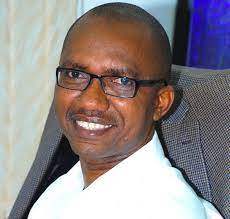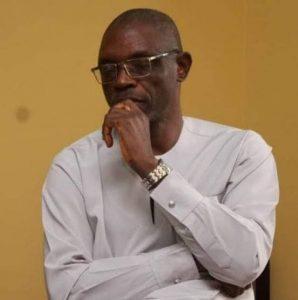It doesn’t make sense to weigh tragedies on a scale. How do you measure them? Leo Tolstoy got it right in Anna Karenina when he said whereas all happy families are alike, every unhappy family is unhappy in its own way.
And so indeed it was on June 14 when it was reported that a boat carrying 750 migrants had capsized near Greece in the Mediterranean killing over 500 with dozens missing.
It was one of the most horrific tragedies in recent times, claiming the lives of hundreds of migrants mostly from Pakistan, Syria, Egypt, Afghanistan and Palestine who put their lives in great danger in pursuit of the basic human instinct of looking for a better life.
A world becoming tragically familiar with migrant misery barely had time to shake its head in pity once again when news broke that a submarine, The Titan, operated by a US-based company, OceanGate, had imploded in the depths killing all five tourists on an expedition to the debris of the Titanic.
Two heart-wrenching tragedies in a space of days and yet the major global news networks could not resist reporting the tragedies on a scale of prejudice that barely disguised where their sympathy lies.
The concerned world also rallied a multinational rescue mission for The Titan sparing neither expense nor expertise. The press provided minute-by-minute accounts of the efforts, looking for experts from around the world who had made similar missions in the past. Others got families of some of those on board to share their fears and hopes.
How, for example, could anyone not be touched by the story of Suleman Dawood, the 19-year-old student who followed his millionaire father, Shazada, on that expedition to honour his Father’s Day wish? We were touched because the press shined a light on the human angle.
Who knows how many such stories among the hundreds of the families of the dead migrants have now gone untold? Interestingly, the Dawoods whose tragic story is still travelling the world, shared a similar Pakistani heritage with some migrants whose own stories will never be heard.

As the search went on, the horrific deaths of the migrants in the Mediterranean fizzled from news flashes to scrolls of ticker tape and soon disappeared altogether.
From the way the networks covered the two accidents, you would be forgiven to think that they had weighed both and concluded that the lives of the 750 migrants mattered less, if they mattered at all. It was not an issue that the number of migrants who died in the Mediterranean on June 14 was over one-third of the fatality when RMS Titanic struck an iceberg on its maiden voyage in 1912.
Somehow, the unspoken message was that the migrants deserved their fate. What else did they want from Europe or the rest of the world? After all, in the last eight years or so, and long before the Russia-Ukraine war complicated things, Europe had opened its borders to an estimated 1.5 million migrant refugees. Yet, in spite of tighter border controls, controversial repatriations and deportations, the wave of migrants has been unrelenting.
Governments in Europe, especially in Italy and Greece, that spent years sleepwalking over a comprehensive plan to manage the migrant crisis have used rising domestic economic difficulties and the upsurge in right-wing groups in their countries as excuses for cracking down on migrants, sometimes, with the most cynical sea-border policing.
Since no deterrent appears to have worked so far (not unsanitary conditions, severe overcrowding, poor food and water quality, torture by guards or even reinforced barbed wires), the networks may well have deployed their own – a new set of filtering tools to cover the Mediterranean tragedy: downgrade the story if you can’t help it, otherwise turn a blind eye.
Of course, it’s not the fault of the five victims who died in The Titan; it’s the fault of a system that treats people less than who they are because of where they are from, their skin colour – or let’s be honest – because of their economic conditions.
It’s improbable that if the migrant boat were some ocean liner on a summer cruise of the Mediterranean an accident involving 750 passengers out of which 500 have been confirmed dead would be given the same shorthand coverage.
The double-standard between the wall-to-wall coverage of the implosion of The Titan and the short shrift that the deaths of over 500 migrants received at the hands of the global networks reecho the Shakespearean line about beggars, comets and the deaths of princes. Only that Shakespeare could not have seen that modern networks could sometimes make comets for their own princes.
The hypocritical coverage of both tragic incidents barely hides the fact that even though the deaths touched each affected family in a different way, the material condition of the dead was also a factor in how the tragedies were reported.
Former US President Barack Obama, perhaps one of the world’s most famous modern victims of right-wing calumny, called out the stark contrast, describing it as “obscene” and “untenable.” It’s an obscenity with a long history, one which in 1977 compelled UNESCO to set up the Sean MacBride Commission on North-South communication lopsidedness.
On September 26, 2002, for example, an overcrowded Gambia-bound Senegalese ferry, Le Joola, hit a serious storm at night, killing 1,800 passengers, including the sister and 10 other relatives of the current coach of the Senegalese national football team, Aliou Cisse. Only 64 passengers survived. Cisse was saved on that day by a match for Birmingham City. It was a monumental tragedy, claiming more lives than were lost in RMS Titanic.
But that catastrophic event remained largely unreported then and remains, to date, one of the world’s most famous unlisted calamities on the global calendar. Only a BBC Africa documentary produced last year, on the 20th anniversary of the disaster and the pillars of the victims’ empty graves, remind us there was such a human tragedy!
This double-standard sometimes plays out in how help is deployed, after a humanitarian disaster. When the US sent help to Nigeria after catastrophic floods claimed over 600 lives last year, for example, it sent money – $1 million. When a devastating wildfire impacted New South Wales in Australia in late 2019, on the other hand, the US sent hundreds of firefighters. Sadly, three of them died helping.
To be fair, we can’t blame foreign countries or the major networks forever. If these countries and their networks are hostages to blinkered lenses in understanding and telling our story, journalists in the global south, including Africa, must also invest in telling their own stories themselves.
And that does not have to be only when tragedies happen. Otherwise, neither tragedies nor heart-warming stories would have the touch, which as Tolstoy said, connects to us as humans in their own different, intimate ways.
Ishiekwene is Editor-In-Chief of LEADERSHIP
Source: Frank Talknow




















